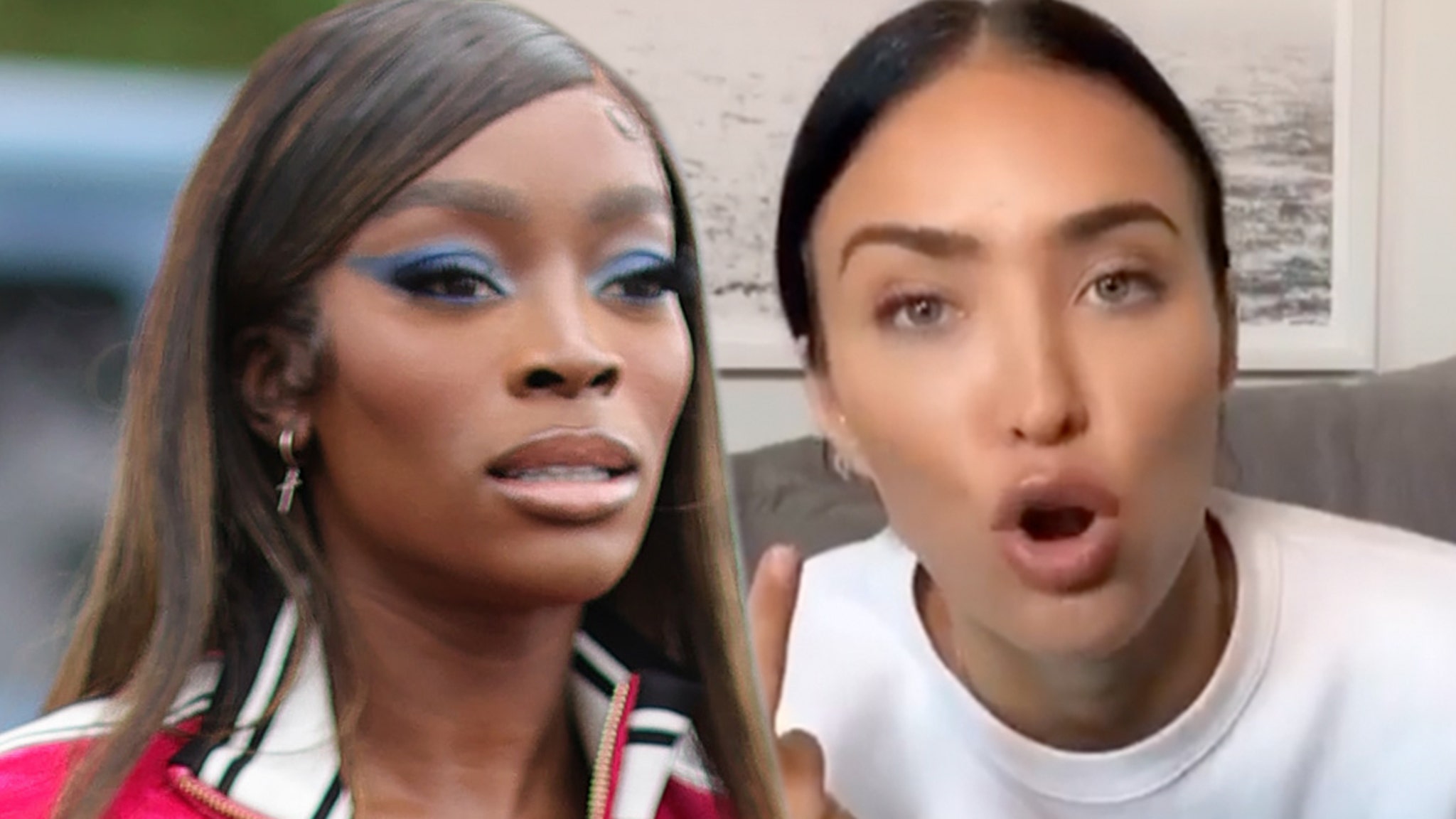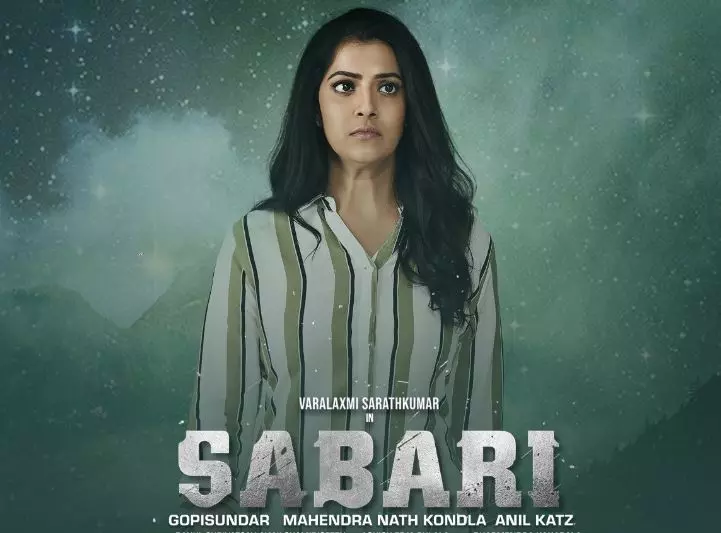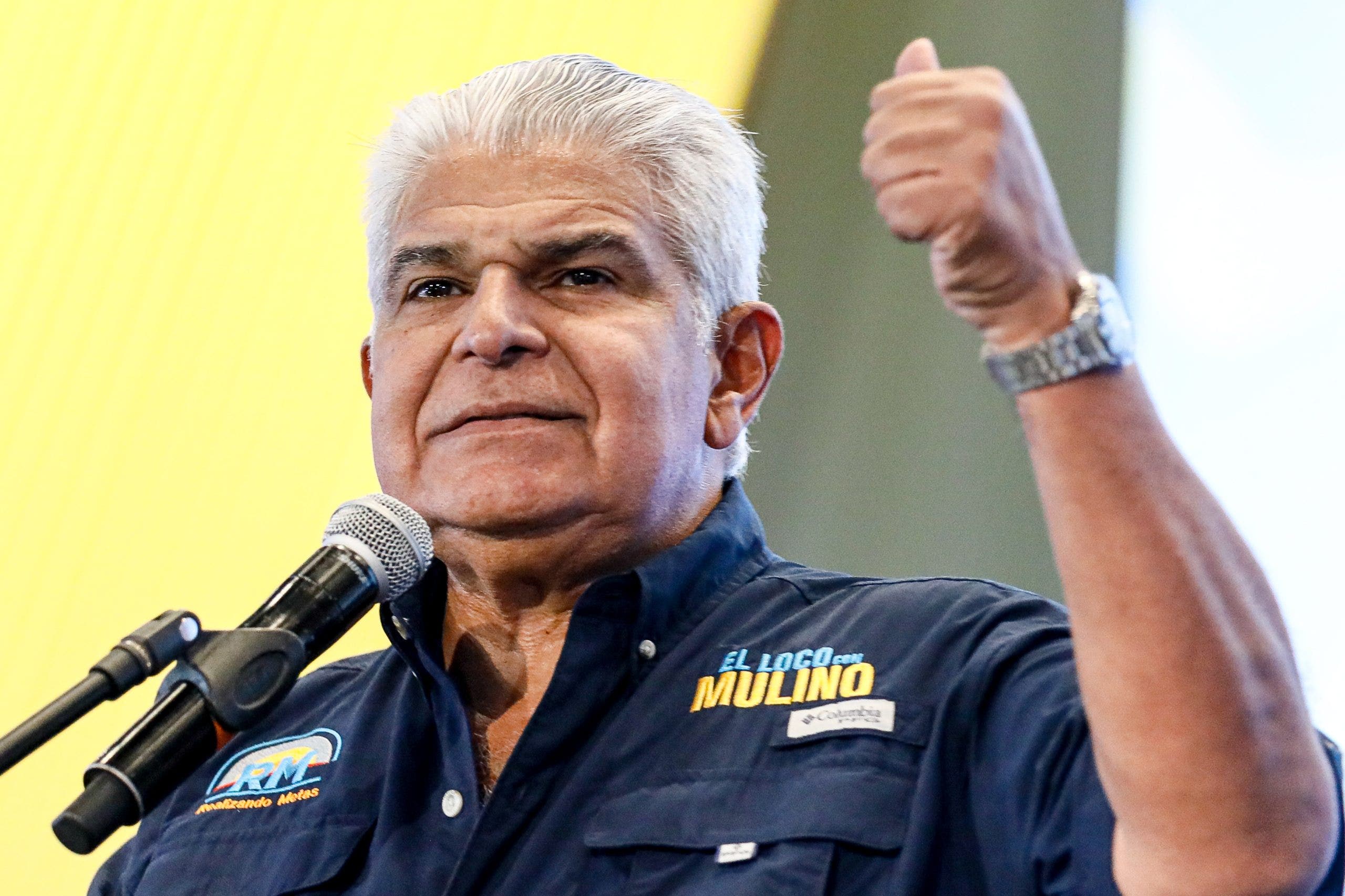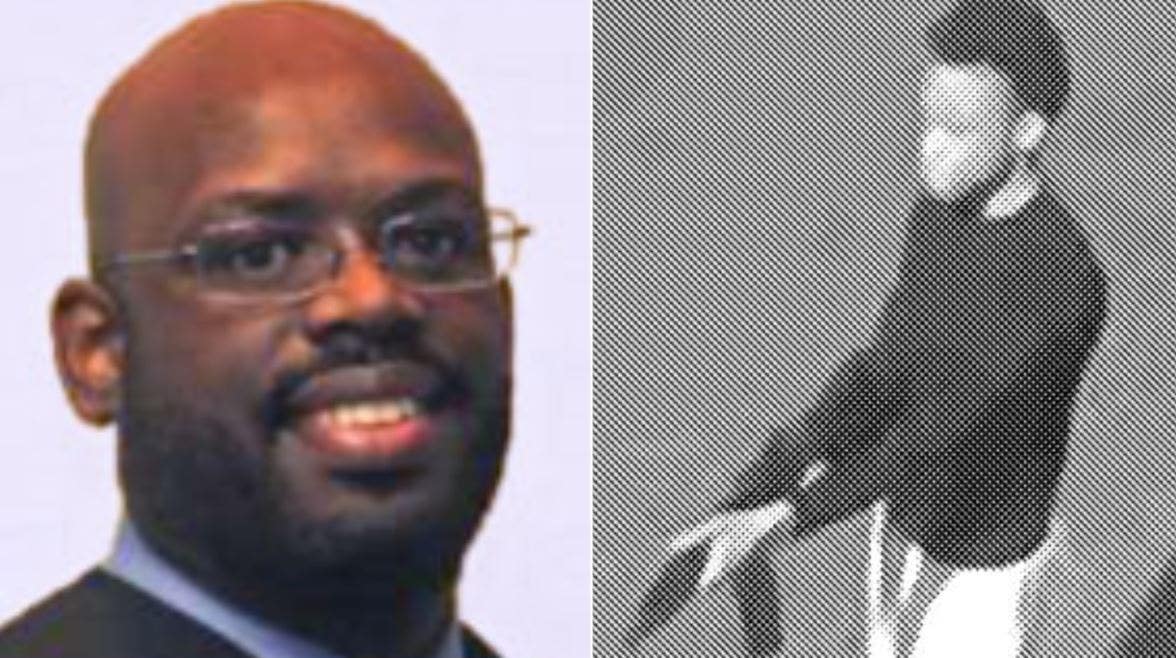Lifestyle
‘Selling Sunset’ Chelsea Lazkani Thinks Bre Tiesi Wants To ‘Kill’ Her After Drama

“Selling Sunset” star Chelsea Lazkani thinks she might’ve gone overboard when it came to talking smack about newcomer Bre Tiesi and her relationship with Nick Cannon — claiming she’s now keeping her distance to stay alive!
ICYMI, Bre — who shares a kid with Nick — joined the Oppenheim Group for the hit reality series’ latest season … and Chelsea took an off-camera moment of Bre’s directly to the screen, telling the other agents Bre was surprised and upset after discovering via news alert that Nick welcomed baby #9 with model LaNisha Cole.
Chelsea’s now wishing she bit her tongue during filming, telling Entertainment Tonight, “I think she wants to kill me, and I want to stay alive for a very long time. So, you know, I just think I’ll keep my distance from her.”

The real estate agent says it wasn’t until she took a step back that she realized the harm she put on Bre — adding, “This is a person with true feelings and you could hurt that person, because the difference between the online trolls and myself is I’m right in front of your face.”
BTW, Bre clapped back at Chelsea after making her private moment public … saying her costar was simply digging for a storyline, and nothing more.
You’ll recall, Bre recently said Nick didn’t have to cough up child support cash because of the number of kids he’s had — although her lawyer later debunked his client’s claims.

Lifestyle
Switzerland's Nemo wins Eurovision 2024 in a year of protests

Nemo of Switzerland, who performed the song “The Code,” celebrates after winning the grand final of the Eurovision Song Contest in Malmo, Sweden, on Saturday.
Martin Meissner/AP
hide caption
toggle caption
Martin Meissner/AP

Nemo of Switzerland, who performed the song “The Code,” celebrates after winning the grand final of the Eurovision Song Contest in Malmo, Sweden, on Saturday.
Martin Meissner/AP
Switzerland has won this year’s Eurovision Song Contest. Swiss rapper and singer Nemo’s song “The Code” impressed both the jury and the public at the popular annual event, held Saturday in Malmö, Sweden.
“It is the most insane thing that has ever happened to me,” the 24-year-old vocalist said at the post-event press conference.
“The Code” explores the artist’s nonbinary identity in a flamboyant mashup of opera, rap, drum-and-bass and electronic dance music.
Nemo was one one of two nonbinary singers to compete in the Eurovision Grand Finals this year, along with Ireland’s Bambie Thug.
Switzerland narrowly beat pre-competition favorite Croatia — earning 591 votes compared with the runner-up’s 547 — in an event that was not without controversy.
Security was tight for Israel’s entrant, Eden Golan. She received some boos and turned backs during her performance but placed high at the event, coming in 5th with 375 votes.
Thousands of protesters opposed to Israel’s war in Gaza rallied outside the Malmö Arena in the days leading up to the finals, calling for Israel’s disqualification.
Meanwhile, Dutch contestant Joost Klein was disqualified just hours before the finals began over a complaint lodged by a female production team member. Police said they are investigating.
YouTube
Switzerland took first place at the very first Eurovision Song Contest in 1956. Until now, the country has only won one other time — in 1988. The top entry that year, “Ne Partez Pas Sans Moi,” was performed by a then-little-known (and non-Swiss) singer who would go on to become one of the most successful vocalists of all time: Céline Dion.
Lifestyle
L.A. Affairs: Enough with the perfect Instagram weddings. But how could I make mine special?

When my partner Daniel and I reached our late 20s, our social lives became attending other people’s weddings.
Another Friday night, another welcome party: his and hers signature cocktails, best friend’s toast about embarrassing high school shenanigans and Caprese skewers at the buffet. On Saturday evening came the parade of coordinated bridesmaids; the couple’s vows (he is her rock, she’s made him a better man); the first dance followed by the father-daughter dance; cake-cutting; and the playing of “Celebration” by Kool & the Gang. On Monday morning, the bride’s Instagram post, featuring a black-and-white portrait of the happy couple, confirmed it.
Ta-da: married.
Over and over, we saw the same unoriginal, impersonal show.
When it came to our engagement and wedding, I was determined not to re-create these trappings. I wanted our marriage and the hoopla around it to feel personal, modern, authentic.
So pre-proposal, I laid out three requirements for Daniel: 1. Sapphire instead of diamond. 2. No kneeling. (Let’s start this thing on equal footing, shall we?) 3. We had to do something about his left ring finger because I wasn’t going to walk around like branded cattle while he hobnobbed about as an ostensible bachelor.
The moment finally came on a hike in the San Gabriel Mountains on a Saturday morning. It was a sapphire. He stood. Later that week, we went to get his left ring finger tattooed. I felt like me; we felt like us. So unique, right?
Of course not.
I waited. He asked. I got jewelry for that finger. Neither Pinterest nor the patriarchy quaked in its boots. Here we were: another couple on another hike with another ring.
Ta-da: engaged.
But I hadn’t given up yet. I was determined to plan a wedding that didn’t mindlessly adhere to patriarchal convention or Instagramability.
The dress felt like the easiest place to start. I liked the idea of blue or green, maybe something with a pattern. But when my mother, sister and I arrived at our first appointment, we were met with a mob of tulle and sparkle, sweetheart necklines and tea-length hems, and white, white, white.
Before I knew it, I was standing on a pedestal surrounded by mirrors. The curtain was whipped closed by my stylist, and by the time I had silently concluded that I hated all gowns and, come to think of it, despised the color white on anything — cakes, clouds, printer paper — she had zipped me up, clamped the dress to size, turned me toward the mirror and pulled the curtain open.
There I was.
A bride.
“Oh my God,” I said.
I had transformed. I was my mother in the wedding photo my father keeps on his dresser. I was Sleeping Beauty, and JLo in “The Wedding Planner.” I was Grace Kelly and that nameless bride in the antique store daguerreotype and every woman who has ever been married wearing anything at all.
For a moment, I forgot about being me. I relished the idea that I looked like somebody else. Somebody doing that thing. Somebody getting married.
A few months later, my grandparents threw a 65th-anniversary party. Nana and Grandpa are the world’s cutest couple, and the party reflected it. Guests wept as my grandfather lifted my wheelchair-bound grandmother to her feet and swayed her to the song that was their first dance: “On the Street Where You Live” from “My Fair Lady.”
On the way out of the party, I looked at the photo they’d propped by the door. There was my grandfather with his ink-black hair. There was my grandmother holding her bouquet, veil draped over her white gown. It wasn’t inspired by Pinterest, and it would never see an Instagram grid. But it was the same thing that every couple after every ceremony every weekend gets too: their wedding photo.
And in that moment, I wanted an exact replica. Put me on the church steps and drape me in a veil. Snap it, frame it and call it a union. Because how else could I explain this thing we’re doing? What original language can be put to the decision to spend the rest of my life legally, spiritually and emotionally intertwined with another human?
I realized then, and came to embrace over months of planning, what the cookie-cutter wedding was all about. Although I kept my foot down on the more overtly sexist aspects, I stopped resisting the feeling that I was unoriginal and a copycat and started to see the beauty in repetition.
Proposals, aisles, first dances, tiered cakes? Yes, they are hackneyed and tired. But they’re also the most precise way we have to say, “Hey. You know that thing? That stupid, inexplicable, magical thing — marriage? We’re doing that.” It’s a funny language for such lofty, ineffable ideas, but it gets the message across: We’re part of a timeless tradition of something that can’t be described in words.
Daniel and I got married last May. We didn’t have matching bridesmaids, and I don’t think I used the word “rock.” But my dress was as white as the cake. We ate our Caprese skewers with abandon. We had a first dance, a father-daughter dance and a mother-son dance for good measure. And obviously, the band played “Celebration.”
So did we do what everyone else did? Yes. And … so what? Of all the things to emulate, to copy and paste from the internet, eternal love seems like a pretty good option.
The author is a writer, editor and singer-songwriter from St. Louis. Her short fiction has been published in Narrative, Ninth Letter and Epoch, among others. She is the editor of december, a literary magazine. She also just completed her debut novel. She lives in Long Beach and is on Instagram: @isabellestillman
L.A. Affairs chronicles the search for romantic love in all its glorious expressions in the L.A. area, and we want to hear your true story. We pay $400 for a published essay. Email LAAffairs@latimes.com. You can find submission guidelines here. You can find past columns here.
Lifestyle
In honor of Mother's Day, here's 'Mother Play' — which gestated for 40 years

Playwright Paula Vogel is known not just for her work on Broadway — but for the generations of famous playwrights whose careers she has nurtured. Above, Jessica Lange in Paula Vogel’s Mother Play.
Joan Marcus/Second Stage
hide caption
toggle caption
Joan Marcus/Second Stage

Playwright Paula Vogel is known not just for her work on Broadway — but for the generations of famous playwrights whose careers she has nurtured. Above, Jessica Lange in Paula Vogel’s Mother Play.
Joan Marcus/Second Stage
To most of the public, Paula Vogel is best known for her moving, highly theatrical plays, among them How I Learned to Drive, Indecent and her latest work, Mother Play, starring Jessica Lange and up for several Tony Awards. But since 1984, she has taught scores of younger playwrights – first at Brown University, then at Yale.
“I love teaching as much as I love writing,” said Vogel. “So, this is, actually, for the last 40 years, has been something of a juggling act, because I always miss doing the other one.”
Over the years, her former students have won Tony Awards and Pulitzer Prizes and have been produced on and off Broadway.
“I wanted my students to get on Broadway before I did,” Vogel said. “I wanted my students to get produced at theater companies that I would never be produced in. And, you know, I always think of this as kind of one stop shopping; come in as an emerging playwright and leave the room as my colleague.”
“One of the first things she said, the first day I met her, was, ‘When a door opens for you, you hold it open and you let one other person through,’” said Pulitzer Prize-winning playwright Quiara Alegría Hudes, perhaps best known for writing the script and screenplay for In the Heights. “And that’s her. Except for, she’s really holding the door open and like, hundreds of people are coming through. She teaches you about the ethics; not just playwriting structure and style, but the ethics of living a life as a writer, as an artist. She models that.”
A lifelong mentor

“I wanted my students to get on Broadway before I did,” says playwright and professor Paula Vogel.
Second Stage
hide caption
toggle caption
Second Stage

“I wanted my students to get on Broadway before I did,” says playwright and professor Paula Vogel.
Second Stage
Vogel, who grew up in the Washington, D.C., area, frequently writes out of personal experience – sometimes painful personal experience. Her breakout play was The Baltimore Waltz, which dealt with her brother’s dying of AIDS.
MacArthur Grant-winning playwright Sarah Ruhl said she studied with Vogel at a particularly vulnerable time in her life.
“I met Paula when I was 20, and my father had just died of cancer, and I was back at Brown and I was having a little trouble focusing,” Ruhl said. “And Paula really understood how grief shapes an artist, and, also how to help artists out of that muddle and into their work.”
In fact, Ruhl’s breakout play, Euridyce, sends the title character to Hades where she meets her dead father.

When two-time Pulitzer Prize-winner Lynn Nottage first met Vogel, she was planning to go to journalism school and didn’t realize that playwrighting was a career path for women.
“I was taking a playwriting seminar class, and she walked in and she was still a young, ambitious playwright figuring out how to teach playwriting,” said Nottage. “And I found her to be warm and generous and nurturing and encouraging and really inspirational in ways that fed my spirit.”
Her former students said it wasn’t just their spirits being fed. “She would take me to this place, Café Zog in Providence on Wickenden street and we’d have a cookie,” Ruhl said. “And, you know, she would feed her writers.”
They still meet for the occasional cookie. Or drink.
Lynn Nottage recalled that when she and Vogel made their Broadway debuts in 2017, they frequently met for drinks, because they felt they weren’t getting the support from the media and the Broadway community that they had hoped for.
“So, I think that having an ally and having a sister and having someone, literally, I could hold hands with and, you know, fight the powers-that-be, really emboldened me and allowed me to survive that.”

She added that although Vogel is a kind person, she is also “a badass…she also does have that side that demands to be heard and demands to be seen and that is an advocate and fighter for other writers’ voices.”
“There are no classroom boundaries, I think, around the mentorship that Paula creates and fosters,” said Ruhl. “It is lifelong.”
Vogel and her wife, Anne Fausto-Sterling, officiated at Ruhl’s wedding.
“I’ve actually officiated at a number of former students’ weddings, which, has become one of my hobbies,” Vogel said. “I love doing it.”
All three playwrights have become teachers themselves, and friends with one another. Hudes said she and Vogel share early drafts of their plays. “I have read Mother Play. And I think it’s her best play, and I don’t say that lightly. I am in awe of her body of work.”
The birth of Mother Play

Jim Parsons and Jessica Lange in Mother Play.
Joan Marcus
hide caption
toggle caption
Joan Marcus
Yet while Vogel may have become a nurturing teacher and colleague, Mother Play makes it clear that her own mother wasn’t particularly nurturing.
Jessica Lange plays the fictional version. “In the play, Phyllis makes some absolutely unforgivable decisions and then really pays the price for it, lives with those consequences for the rest of her life,” Lange said.
Vogel said Mother Play had a 40-year gestation period and it’s her homage to the many mother plays written by men. “
“When I was sitting at the dinner table with my mother, my brother and I could quote Glass Menagerie at each other, have a little private joke, and get through dinnertime,” Vogel said. “But I was curious as to what is the difference when women write mother plays.”
Set over 40 years, her mother play is written with empathy and forgiveness. The audience sees the struggles this single mother goes through, with money, with alcohol, with her gay children, with loneliness. And all within the context of the constraints of the time period in which she lived.
“Maybe Paula existed in sort of resistance and rebellion to her mother,” mused Lynn Nottage. “You think about the path that Paula has taken is that she never had biological children of her own, but she has this immense, beautiful family in the theater world. And that’s really a blessing.”
-

 Education1 week ago
Education1 week agoVideo: President Biden Addresses Campus Protests
-

 Movie Reviews1 week ago
Movie Reviews1 week agoSabari Movie Review: Varalaxmi Proves She Can Do Female Centric Roles
-

 World1 week ago
World1 week agoEuropean elections: What do voters want? What have candidates pledged?
-

 News1 week ago
News1 week agoWhistleblower Joshua Dean, who raised concerns about Boeing jets, dies at 45
-

 Politics1 week ago
Politics1 week agoAustralian lawmakers send letter urging Biden to drop case against Julian Assange on World Press Freedom Day
-

 World1 week ago
World1 week agoBrussels, my love? Champage cracked open to celebrate the Big Bang
-
News1 week ago
A group of Republicans has united to defend the legitimacy of US elections and those who run them
-

 Politics7 days ago
Politics7 days agoHouse Dems seeking re-election seemingly reverse course, call on Biden to 'bring order to the southern border'















